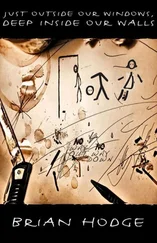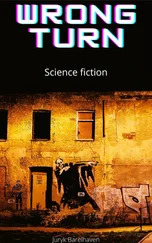Kibaki was followed by the outgoing Moi, ornate ivory baton clutched in one hand, trademark rosebud in the lapel of a slate-grey suit, face expressionless. Later, it was said the generals had gone to Moi when it became clear which way the election was going and offered to stage a coup. In his prime, his hold on the nation had been so tight, cynics had quipped, ‘ L'état, c'est Moi. ’ But the Old Man had waved the generals wearily away, aware such times were past, Kenya was no longer destined to follow such clichéd African lines.
Eyes yellow and unreadable, Moi took his salute and delivered his last presidential speech without a hint of bitterness, hailing the rival by his side as ‘a man of integrity’. This former schoolteacher's presidency had been an exercise in formalism, and he was determined to fulfil this last, painful role impeccably. But the mob showed no mercy – those watching the ends of Africa's dinosaur leaders never do. What fun, after a quarter-century of respectful forelock-tugging, to be able to let rip. ‘Bye bye,’ they jeered. ‘Go away.’ Others sang: ‘Everything is possible without Moi,’ a pastiche of the ‘Everything is possible with faith’ gospel sung in church. In the crowd, someone brandished a sign: ‘KIBAKI IS OUR MOSES’.
Then it was Kibaki's turn. It was a moment for magnanimity – peaceful handovers, as everyone present that day knew, should never be taken for granted in Africa. And the seventy-one-year-old former finance minister, an upper-class sophisticate known for the amount of time he spent on the golf course, his lazy geniality, was not built in the vengeful, rabble-rousing mould. So the concentrated anger of his speech had those sitting behind Kibaki blinking in surprise. It offered a sudden glimpse of something raw and keen: a fury that had silently brewed under the suave façade during years of belittlement. Never deigning to mention the man sitting by his side, his former boss, Kibaki dismissed Moi's legacy as worthless. ‘I am inheriting a country that has been badly ravaged by years of misrule and ineptitude,’ he told the crowd. He warned future members of his government and public officers that he would respect no ‘sacred cows’ in his drive to eliminate sleaze. ‘The era of “anything goes” is gone forever. Government will no longer be run on the whims of individuals.’ Then he pronounced the soundbite that would haunt his time in office, destined to be constantly replayed on Kenyan television and radio, acquiring a different meaning every time. ‘Corruption,’ he said, ‘will now cease to be a way of life in Kenya.’ Whenever I hear it today, I notice a tiny detail that passed me by as I stood in that sweaty scrum, smeared notebook in hand, mentally drafting the day's article: Kibaki, always a laboured speaker, slightly fumbles the word ‘cease’. Lisped, it comes out sounding very much like ‘thief’.
The speeches over, the various presidents headed for their motorcades as the security services heaved sighs of relief. The inauguration had been an organisational débâcle, but tragedy had somehow been skirted, as was the Kenyan way. For Moi, one last indignity was reserved. When his limousine drew away, snubbing a long-delayed State House lunch in favour of the helicopter that would whisk him away from the hostile capital and to his upcountry farm, it was stoned by the crowd.
As I climbed down off the table, my bag momentarily became wedged in the mêlée, and hands reached out from the crowd. Remembering the little fingers at work earlier in the morning, I rounded my shoulders and gave my bag an aggressive yank. ‘Oh, no, no, madam,’ sorrowed a man, knowing exactly what was in my mind. ‘Those days are over now in Kenya, this is a new country.’ They were reaching out not to mug me but to help me, a member of the international press who had played a tiny part in Kenya's moment of glory by mere dint of witnessing it. ‘You will see, this will be our best ever government,’ chimed in a smiling student, sweat-soaked T-shirt plastered to his body, and I felt a spasm of shame.
In the days that followed I would often feel ashamed, for my professional cynicism was out of step with the times. There was a tangible feeling of excitement in the air, a conviction that with this election, Kenyans had brought about a virtually bloodless political, social and psychological rebirth, saving themselves from ruin in the nick of time. Many of those who had represented the country's frustrated conscience – human rights campaigners, lawyers and civic leaders who had risked detention, police beatings and harassment in their bid to drag the country into the twenty-first century – were now in charge. Mass happiness blended with communal relief to forge a sense of national purpose. With this collective elation went an impatience with the old ways of doing things. Newspapers recounted with glee how irate passengers were refusing to allow matatu touts to hand over the usual kitu kidogo – that ubiquitous ‘little something’ – to the fat-bellied police manning the roadblocks, lecturing officers that a new era had dawned. There were reports of angry wananchi – ordinary folk – storming an upcountry police station to demand refunds of bribes paid over the years. In ministries, at City Hall, at the airport, only the very foolish still asked for the customary backhander. Backs were straightened, desks cleared in nervous anticipation of an incoming deputy minister or mayor out to show the TV cameras that he would have no truck with sloth and incompetence. Large signs – ‘This is a corruption-free zone’, ‘No bribes’, ‘You have a right to free service’ – went up in government offices, along with corruption complaints boxes, which swiftly filled up with letters venting grievances that had festered through the decades.
The social contract taken for granted in so many Western countries, barely discernible in Kenya, suddenly began to make itself felt. ‘Damn it all,’ a Kenyan writer returning from self-imposed exile told me, with the air of a man making a possibly foolhardy concession, ‘I'm even thinking of paying tax!’ And just in case anyone was in danger of forgetting the past, the NARC government threw open the basements of Nyayo House, an ugly beige high-rise on the corner of Uhuru Highway, in whose dank cells opponents of the Moi regime had been beaten, reduced to drinking their own urine and killed. When Gallup conducted a poll, it found that Kenyans were the most optimistic people in the world, with 77 per cent saying they had high hopes for the future. Reserved and inhibited, Kenyans are sometimes dubbed ‘the Englishmen of Africa’ because of their refusal to live up to the stereotype of boisterous, carefree Africans. After decades languishing in the grey fug of the Moi regime, they could barely stop smiling.
And the new president kept hitting the right notes. When the country's biggest companies took out fawning newspaper advertisements congratulating him, Kibaki reproved them for wasting money. He had no intention, he said, of following his predecessor's example by putting his face on the national currency, streets and buildings. His pledge not to bring city traffic grinding to a halt with wailing presidential motorcades seemed to hold good. Across the land, the framed official Moi photograph, so ubiquitous it had become virtually invisible, came down from the walls, but was not immediately replaced with one of Kibaki. Shop owners propped the new official portrait against the walls, waiting to see how the political climate would turn. Perhaps Kenya had got beyond the point of needing such crude symbols of authority. As for the media, they luxuriated in a less fractious relationship with the new establishment. It had taken the dawn of multi-partyism in 1992 for any newspaper cartoonist to dare depict the president. Even then they had gone on tiptoe, initially showing no more than a hand with a rungu , Moi's signature baton, then depicting the Great Man as a silhouette from behind, before cautiously shifting him round, image by image, to face the readership. ‘It was from simple fear, because they could come for you,’ recalled cartoonist Frank Odoi. But with Kibaki, who had been drawn for decades lazing at the golf course, such veneration would have been absurd. The new president was shown full-on, just as he always had been.
Читать дальше












